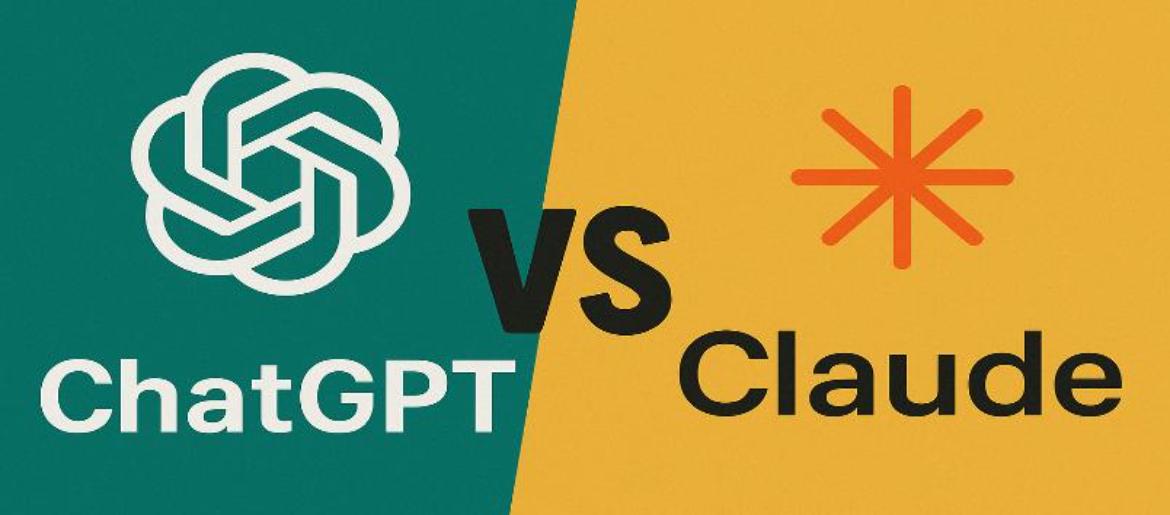ChatGPT vs Claude represents one of the most hotly debated topics in the artificial intelligence space today. As AI assistants become increasingly sophisticated and integral to our daily workflows, choosing between OpenAI’s ChatGPT and Anthropic’s Claude has become a critical decision for millions of users worldwide. Both platforms offer powerful conversational AI capabilities, but they differ significantly in their approach, strengths, and ideal use cases.
The battle between these two AI giants isn’t just about raw computing power—it’s about philosophy, safety, user experience, and practical applications. While ChatGPT pioneered the mainstream AI conversation revolution, Claude has emerged as a thoughtful alternative with its own unique advantages. Understanding the nuances between these platforms can help you make an informed decision about which AI assistant best serves your specific needs.
Understanding the Fundamentals
ChatGPT, developed by OpenAI, launched in November 2022 and quickly became the fastest-growing consumer application in history. Built on the GPT (Generative Pre-trained Transformer) architecture, it focuses on generating human-like responses across a vast range of topics and tasks. The platform has evolved through multiple iterations, with GPT-4 representing the current flagship model.
Claude, created by Anthropic, takes a different approach to AI development. Founded by former OpenAI researchers, Anthropic built Claude with a strong emphasis on AI safety and alignment. The company’s Constitutional AI approach aims to create more helpful, harmless, and honest AI systems. Claude is available in multiple versions, including Claude Sonnet and Claude Opus, each optimized for different use cases.
ChatGPT’s Key Advantages
Broader Ecosystem Integration ChatGPT’s most significant advantage lies in its extensive ecosystem. OpenAI has built a comprehensive platform that includes custom GPTs, plugin support, and API access that powers thousands of third-party applications. This integration makes ChatGPT incredibly versatile for users who want to incorporate AI into existing workflows or build custom solutions.
Advanced Multimodal Capabilities ChatGPT excels in handling multiple types of input simultaneously. Users can upload images, documents, and even audio files, making it a truly multimodal assistant. The platform’s ability to analyze charts, interpret diagrams, and process visual information gives it a considerable edge in certain professional applications.
Large User Community and Resources The massive ChatGPT user base has created an extensive knowledge sharing community. Online forums, tutorials, and prompt libraries provide users with countless examples and best practices. This community-driven support system makes it easier for newcomers to maximize the platform’s potential.
Business and Enterprise Features ChatGPT offers robust enterprise solutions with enhanced security, administrative controls, and integration capabilities. The platform’s business-focused features make it attractive for organizations looking to deploy AI at scale while maintaining security and compliance standards.
Claude’s Distinctive Strengths
Superior Long-form Content Generation Claude consistently demonstrates exceptional ability in creating lengthy, well-structured content. Whether writing detailed reports, comprehensive analyses, or extensive creative pieces, Claude maintains coherence and quality throughout longer outputs. This makes it particularly valuable for content creators, researchers, and professionals who need substantial written work.
Enhanced Safety and Ethical Considerations Anthropic’s Constitutional AI approach gives Claude a notable advantage in producing safer, more balanced responses. The system shows better judgment in avoiding harmful content while maintaining helpfulness. This safety-first approach makes Claude particularly appealing for educational institutions and organizations with strict content guidelines.
More Nuanced Conversational Style Claude often provides more thoughtful, nuanced responses that acknowledge complexity and uncertainty. Rather than presenting information as absolute fact, Claude frequently explores different perspectives and admits when topics require careful consideration. This approach leads to more intellectually honest conversations.
Better Context Retention In extended conversations, Claude demonstrates superior ability to maintain context and reference earlier parts of the discussion. This contextual awareness creates more coherent long-form dialogues and makes Claude particularly effective for complex problem-solving sessions that require building upon previous insights.
Pricing and Value Comparison
ChatGPT Pricing Structure ChatGPT offers a free tier with limited usage of GPT-3.5, which provides basic functionality but comes with restrictions during peak times. The ChatGPT Plus subscription costs $20 per month and includes access to GPT-4, faster response times, and priority access during high-demand periods. For businesses, ChatGPT Team starts at $25 per user per month, while ChatGPT Enterprise offers custom pricing with advanced security and administrative features.
Claude Pricing Model Claude provides a generous free tier that includes access to Claude Sonnet with substantial daily usage limits. The Claude Pro subscription costs $17 per month, offering access to Claude (their most powerful model) with 5x more usage than the free tier. For teams and businesses, Claude Team is available at $25 per user per month, providing collaborative features and higher usage limits.
Value Assessment ChatGPT vs Claude pricing appears similar on the surface, but the value proposition differs significantly. Claude’s free tier is notably more generous, allowing users to accomplish substantial work without upgrading. ChatGPT’s ecosystem integrations and plugins may justify the cost for users who need extensive third-party connectivity.
Comparing Performance Areas
Content Writing Excellence When examining content writing capabilities, ChatGPT vs Claude reveals distinct approaches that cater to different writing needs. Claude consistently demonstrates superior performance in long-form content creation, producing articles, reports, and essays with remarkable coherence and flow. Its writing style tends to be more sophisticated, with better paragraph transitions and narrative structure that feels naturally human.
ChatGPT excels in creative writing variety and can adapt to numerous writing styles quickly. It’s particularly effective for social media content, marketing copy, and formats requiring specific templates or structures. However, for substantial content pieces exceeding 1,000 words, Claude typically maintains better quality and consistency throughout the entire piece.
Blog Writing and SEO Content For bloggers and content marketers, Claude’s ability to maintain topical focus while incorporating keywords naturally makes it exceptional for SEO-optimized content. It understands content hierarchy and creates articles with proper heading structures and logical flow. ChatGPT, while capable, sometimes struggles with maintaining consistent quality in longer blog posts and may require more editing for publication-ready content.
Academic and Professional Writing Claude’s nuanced approach to complex topics makes it particularly valuable for academic writing, research papers, and professional documentation. It better handles citations, maintains formal tone consistency, and provides more thorough analysis of multifaceted subjects.
As AI tools like ChatGPT and Claude reshape how businesses operate, many creative industries are leveraging these assistants for improved efficiency. For example, a modern web design agency can use ChatGPT for faster content generation, while Claude helps in structuring UX copy or communication strategies—making AI integration a game-changer in the design process.
Programming and Coding Capabilities
Code Generation and Problem Solving: In the coding arena, ChatGPT vs Claude presents interesting contrasts. ChatGPT demonstrates broader knowledge of programming languages and frameworks, likely due to its more extensive training on code repositories. It excels at generating quick code snippets, API integrations, and handling popular programming frameworks like React, Python libraries, and web development stacks.
Claude approaches coding with more methodical precision. While it may not recognize as many niche libraries or cutting-edge frameworks, its code explanations are typically more thorough and educational. Claude excels at debugging complex code issues and providing comprehensive code reviews with detailed explanations of potential improvements.
Code Documentation and Learning: For developers learning new concepts, Claude’s superior explanatory abilities make it an excellent coding tutor. It breaks down complex programming concepts into digestible explanations and provides context for why certain approaches are preferred. ChatGPT is faster at generating working code but may provide less educational value in its explanations.
Full-Stack Development Support: ChatGPT’s ecosystem integrations and broader framework knowledge make it more suitable for full-stack development projects requiring multiple technologies. Claude’s strength lies in creating well-documented, maintainable code with comprehensive comments and explanations.
Database and Backend Development: ChatGPT shows stronger knowledge of database systems, cloud platforms, and backend architectures. It’s particularly effective for DevOps tasks, server configuration, and database optimization queries. Claude provides more thorough security analysis and code quality assessments but may lack knowledge of the latest deployment tools and cloud services.
Frontend Development and UI/UX: Both platforms handle frontend development well, but ChatGPT’s broader ecosystem knowledge includes more current CSS frameworks, JavaScript libraries, and design systems. Claude excels at creating accessible, semantic HTML and providing detailed explanations of web standards and best practices.
Educational Applications: Claude’s safety-first approach and nuanced explanations make it particularly effective for educational use. It excels at breaking down complex concepts and providing balanced perspectives on controversial topics. ChatGPT’s multimedia capabilities, however, make it more versatile for interactive learning experiences.
Key Disadvantages and Limitations
ChatGPT’s Weaknesses: The platform sometimes produces responses that sound confident but contain factual errors. ChatGPT can also be inconsistent in its output quality, particularly with complex reasoning tasks. The free tier has usage limitations, and the subscription model can become expensive for heavy users.
Claude’s Limitations: Claude lacks the extensive third-party integrations that make ChatGPT so versatile. The platform has more conservative content policies that, while safer, can sometimes limit legitimate use cases. Claude also has fewer multimodal capabilities compared to ChatGPT’s image and audio processing features.
Making the Right Choice
The decision between ChatGPT vs Claude ultimately depends on your specific needs and priorities. Choose ChatGPT if you need extensive integrations, multimedia processing, or want access to the latest information through web browsing. Its ecosystem approach makes it ideal for users who want a versatile tool that connects with other applications.
Select Claude if you prioritize thoughtful, nuanced responses and need an AI assistant for substantial writing projects. Its safety-focused approach and superior long-form content generation make it particularly valuable for professional writing, research, and educational applications.
Many power users actually employ both platforms, leveraging ChatGPT’s integrations and multimedia capabilities alongside Claude’s thoughtful analysis and superior writing abilities. This hybrid approach maximizes the strengths of both systems while mitigating their individual limitations.
The Future Landscape
The ChatGPT vs Claude competition continues to drive innovation in both platforms. OpenAI’s focus on creating artificial general intelligence pushes ChatGPT toward broader capabilities and integrations. Anthropic’s commitment to AI safety and alignment positions Claude as the more cautious but potentially more trustworthy option.
As these platforms evolve, the distinction between them may become less about raw capabilities and more about philosophy and approach. The choice between ChatGPT and Claude increasingly reflects whether you prioritize versatility and integration or safety and thoughtful analysis.
Both platforms represent remarkable achievements in artificial intelligence, and neither is definitively “better” than the other. The optimal choice depends on understanding your specific requirements and aligning them with each platform’s particular strengths. As AI technology continues advancing, having options that serve different needs and approaches benefits everyone in this rapidly evolving landscape.































